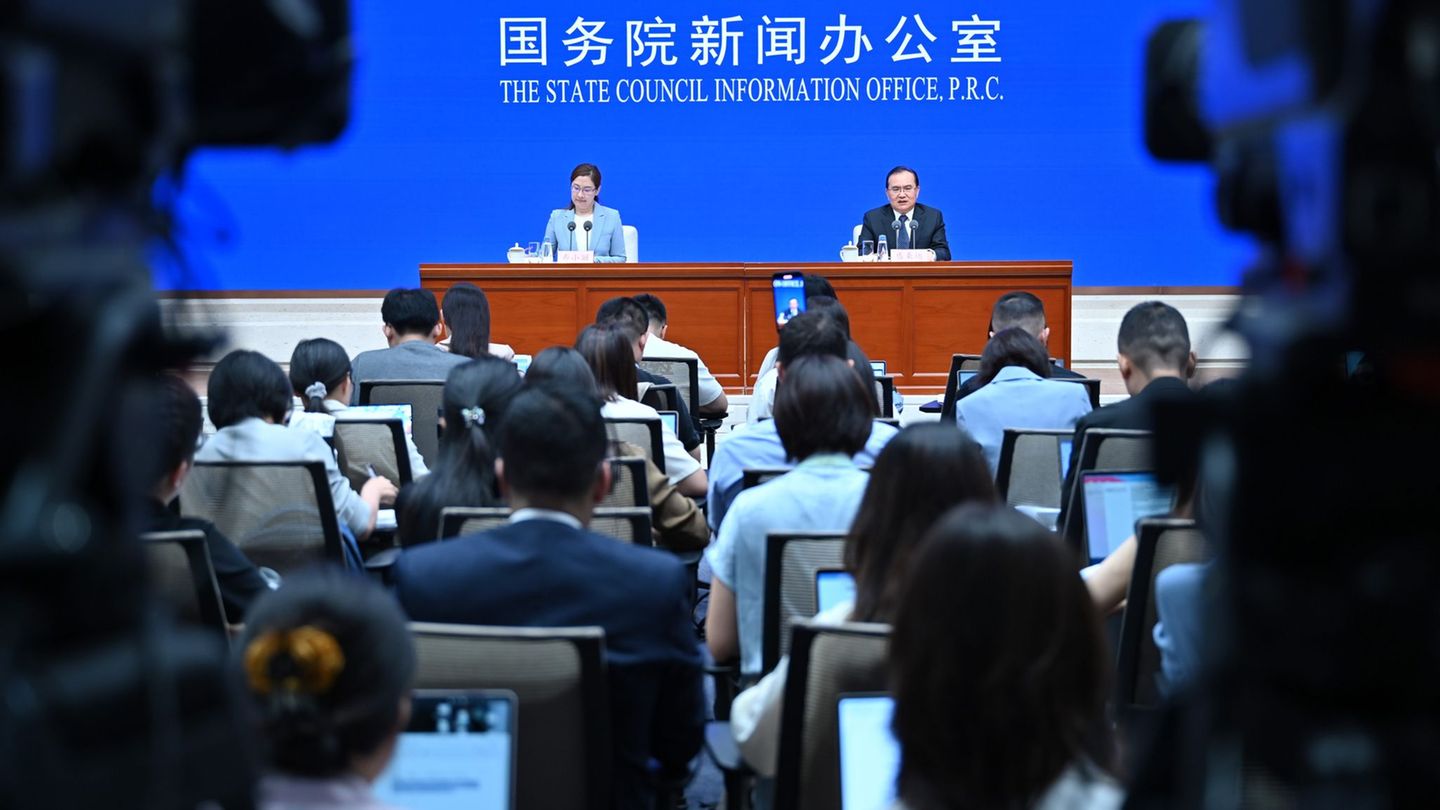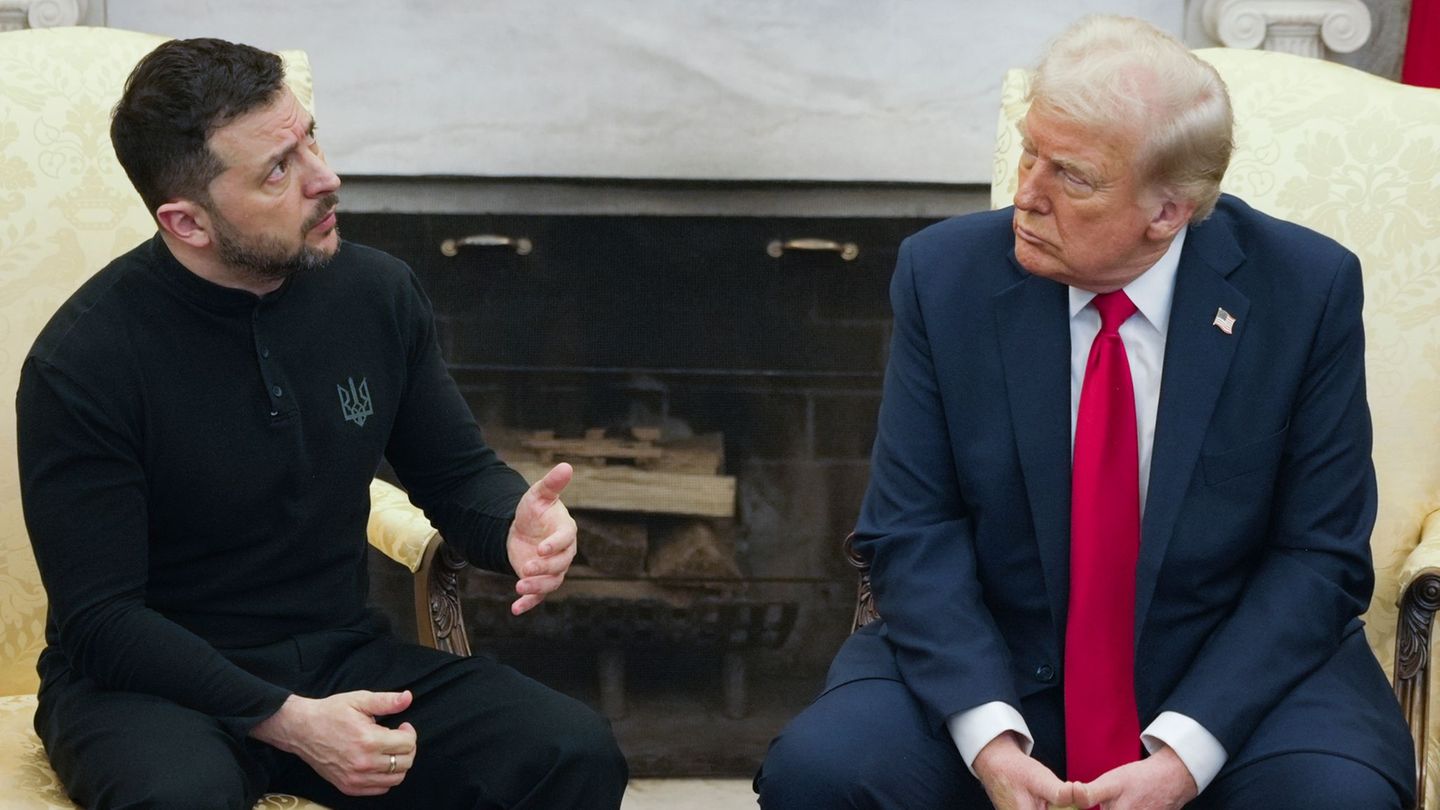For days, Israel has been on alert for a possible attack by Iran and its allies. Much is at stake in new negotiations in Doha on a ceasefire in the Gaza war.
Accompanied by concerns about a looming conflagration in the Middle East, potentially decisive talks are about to take place in the conflict between Israel and the Islamist Hamas. At the urging of the mediators, the USA, Qatar and Egypt, a round of negotiations on a ceasefire is planned for Thursday, which will again involve the exchange of hostages for Palestinian prisoners. A breakthrough could also prevent a retaliatory strike by Iran against Israel – and thus an expansion of the war well beyond the Gaza Strip.
The talks are to take place in Qatar’s capital Doha, the German Press Agency learned from sources familiar with the talks. As in the recent talks in Rome, CIA chief William Burns, Qatar’s Prime Minister Mohammed bin Abdulrahman Al Thani and Egypt’s intelligence chief Abbas Kamel are expected to attend. The head of the foreign intelligence service Mossad, David Barnea, is expected to represent Israel.
The Islamist Hamas does not want to take part in the talks without a clear plan to implement US President Joe Biden’s proposals for a ceasefire. They will “not negotiate under fire,” the dpa learned from Hamas circles. A high-ranking Hamas official in Turkey said that the group was, however, prepared to be informed about the points discussed afterwards. Hamas and Israel do not negotiate directly with each other.
War of nerves before Gaza talks – hope for success
After the killing of an important representative of the pro-Iranian Hezbollah militia in Lebanon and the foreign chief of Hamas in the Iranian capital Tehran a good two weeks ago, there have been fears for days of a major attack by Iran and its allies on Israel. The Islamic Republic, Hezbollah and the Islamist Hamas in the Gaza Strip have announced retaliation.
In April, Iran attacked Israel directly for the first time in retaliation for a suspected Israeli attack on an Iranian consular building in Syria. The attack was limited – the more than 300 drones, rockets and cruise missiles were largely repelled by Israel with the support of partners and countries in the region. There are fears that there could now be a coordinated attack against Israel – together with Hezbollah, the Houthi militia in Yemen and militias loyal to Iran in Syria and Iraq. With an estimated 150,000 rockets, drones and cruise missiles, Hezbollah is considered the most powerful militia in the region.
The Israeli army is on alert and, according to official information, reserves the right to take offensive measures. It can count on support from the USA, among others. The USA has greatly expanded its military presence in the region. In Iran, the USA and Israel are both declared arch enemies. An open military conflict has been feared between the two countries on several occasions, especially after the killing of top Iranian general Ghassem Soleimani in a US drone attack in Iraq in 2020.
Outcome of talks uncertain – What is Iran doing?
What the talks will achieve is completely uncertain. The negotiations have made little progress recently. Israel’s Prime Minister Benjamin Netanyahu rejected accusations that he had set new conditions and thus blocked a deal. He accused Hamas of making new demands. Netanyahu wants to crush Hamas militarily. He wants Hamas to no longer be able to govern the coastal region.
Netanyahu governs in a coalition with ultra-religious and right-wing extremist partners. These are strictly against concessions to Hamas. His opponents accuse Netanyahu of clinging to his coalition partners because he could lose in new elections. Losing his office would in turn accelerate the prosecution of corruption cases in which Netanyahu is allegedly involved.
At the end of May, the USA presented a draft deal that initially provides for a complete and unrestricted ceasefire lasting six weeks. During this period, a certain group of hostages would be released. In return, Palestinians imprisoned in Israel would be released. After that, the fighting would cease permanently and the remaining hostages would be released. In a final phase, the reconstruction of the Gaza Strip would begin.
The mediators are already preparing for the possibility of Hamas not attending the planned talks. In that case, the group will be informed of the conditions discussed for an agreement, the Wall Street Journal quoted Arab mediators as saying.
The mediators recently urged Israel and Hamas to reach an agreement. They will try to be “creative and assertive to get the matter across the finish line,” said John Kirby, communications director of the National Security Council in the US.
Iran’s dilemma: take revenge or wait for Gaza talks?
Iran threatened a retaliatory strike for the killing of Hamas foreign chief Ismail Haniya almost two weeks ago, but has not carried it out since then. “On the one hand, as a revolutionary and anti-Israeli country, we cannot afford to forego an act of revenge, but on the other hand we are also aware of the disastrous consequences of a retaliatory strike,” a political scientist in Tehran explains the dilemma.
A war would not only exacerbate the economic crisis in Iran, but could also lead to renewed unrest. Tehran would also have to reckon with the involvement of the USA, Israel’s most important ally – and with an Israeli response. Israel responded to Iran’s attack in April with a limited strike, which enabled Iran to refrain from responding. But the fact that Israel attacked an air force base in the province of Isfahan, not far from Iranian nuclear facilities, was seen by some observers as a clear message from Israel to Iran: that an attack on nuclear facilities is possible.
The nuclear facilities in the Islamic Republic are considered possible targets for Israel and its allies. Iran claims that the facilities, especially those in Natanz in central Iran and Fordo south of Tehran, are well protected militarily.
So far, statements in Tehran have indicated that Iran wants to refrain from retaliation at least until after the Gaza talks, says the Iranian political scientist. “After that, we will see whether the regime stubbornly opts for a blood feud or rationally opts for a political option.”
Source: Stern
I have been working in the news industry for over 6 years, first as a reporter and now as an editor. I have covered politics extensively, and my work has appeared in major newspapers and online news outlets around the world. In addition to my writing, I also contribute regularly to 24 Hours World.




